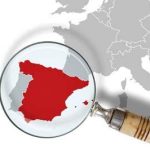
Out-of-Court Settlement & Modification to the Bankruptcy Act
An out-of-court settlement is a legal arrangement between parties outside of court and without a trial. Some of its benefits are the reduction in expenses and stress, its greater privacy, its predictability, finality and flexibility. In Spain, the modification to the Bankruptcy Act has introduced out-of-court settlement as an alternative to contestations and formal refinancing agreements.

Initiation of an Entrepreneurial Activity in Spain
By means of Law 14/2013 (“Entrepreneurs Law”), Spain has undertaken different reforms to create growth and employment and promote the initiation of entrepreneurial activities. Some of these measures include the constitution of a company by public deed, the incorporation of a limited liability company using the DUE and the CIRCE systems without using their model bylaws and the discharge and onset of the activity of individual entrepreneurs and commercial corporations.

Patents and the protection of inventions in Spain
As an intangible asset of a company, a patent is an economic tool. It provides its owner with a competitive advantage by granting a monopoly that enables the owner to prohibit any use of the invention without the owner’s consent.

Out-of-Court Restructuring in Spain
In 2014, the Spanish government implemented the out-of-court restructuring procedure through the Royal Decree Law. Its objective is to help debtors avoid bankruptcy by negotiating with their creditors. Given the time and effort it takes, an out-of-court restructuring can be very favourable to both parties.

Hiring false interns in Spain
The Spanish labour inspectorate is reviewing the situation of interns working in Spanish companies. In the cases where the labour inspectorate detects an employment relationship, the companies will be economically punished and obligated to hire the interns as permanent employees.

Commercial measures to support entrepreneurs in Spain
The commercial measures to support entrepreneurs in Spain include simplifications for electronically legalizing corporate books, issuing electronic powers of attorney, organizing records and the requirements for economic and financial information.

The Entrepreneurial Limited Liability in Spain
Law 14/2013 on support to entrepreneurs and their internationalization (“Entrepreneurs Law”), published in the BOE on Saturday 28 September 2013, aims to support entrepreneurs and entrepreneurship. In commercial and company law matters, the law creates entrepreneurial limited liability, successive formation of limited liability companies, and the introduction of measures to expedite the incorporation of companies and simplify certain corporate obligations.

The Successive Formation Limited Liability Company (S.F.L.L.C.) in Spain
Law 14/2013 (“Entrepreneurs Law”) introduces a new type of company called the Successive Formation Limited Liability Company (S.F.L.L.C.) in order to support entrepreneurial activity in Spain.

Protecting trademarks in Spain
A trade mark is a distinctive sign indicating products and services. Registration confers an exploitation monopoly to the depositor who can prohibit use of his or her distinctive sign by any third party. To protect his or her brand is essential; it prevents a third party from taking advantage of efforts invested in the product or service. In Spain, rights in trademarks are acquired with registration. A trademark is protected for ten years and is renewable infinitely.

The role of a commercial agent in Spain
Using a commercial agent’s services provides a business a profitable and efficient formula when embarking on exporting its goods and services or expanding into new national as well as international markets.

